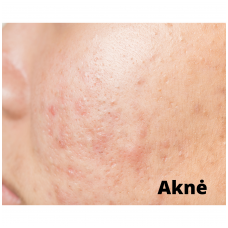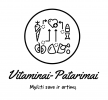Acne

Acne
Acne usually bothers adolescents, as changes in hormone levels during puberty are a major cause of acne and other skin problems. As a result of hormonal changes, the sebaceous glands of the skin begin to produce too much sebum and keratin, which clogs the openings (pores) of the skin glands, resulting in foci of infection in the sebaceous glands. Food rich in saturated fats, fat-fried products further intensify the excretion of fat in the sebaceous glands of the skin. Vitamin A deficiency causes skin hyperemia (flushing) as keratinization of cells on the skin surfaces increases. The lack of vitamin A and zinc also reduces the body's ability to fight infection. Optimal nutrition helps balance hormones and reduces the risk of infections. The most important supplements are vitamin A, B complex and especially vitamin B6, vitamins C and e, nicotinic acid for early activation of skin blood circulation and vitamin E for effective healing of skin wounds. Proper nutrition and cleanliness are essential components of acne treatment. Be careful with iodine-containing food supplements, as iodine can intensify the appearance of acne.
Dietary advice
Consume food according to the principles of optimal nutrition. Drink plenty of water. Useful products rich in sulfur – eggs, garlic, onions. Avoid sugar, smoking, fatty and fried products. Eat plenty of fresh fruits and vegetables (water-rich products).
Supplements
2 doses of multivitamin and mineral complex (Formula IV)
2 doses of antioxidant complex (Betaguard)
2 doses of vitamin C (SUSTAINED RELEASE VITAMIN C)
Vitamin E 400 mg per day (intensifies skin healing) (WHEAT GERM OIL WITH VITAMIN E)

 +370 679 670 37
+370 679 670 37